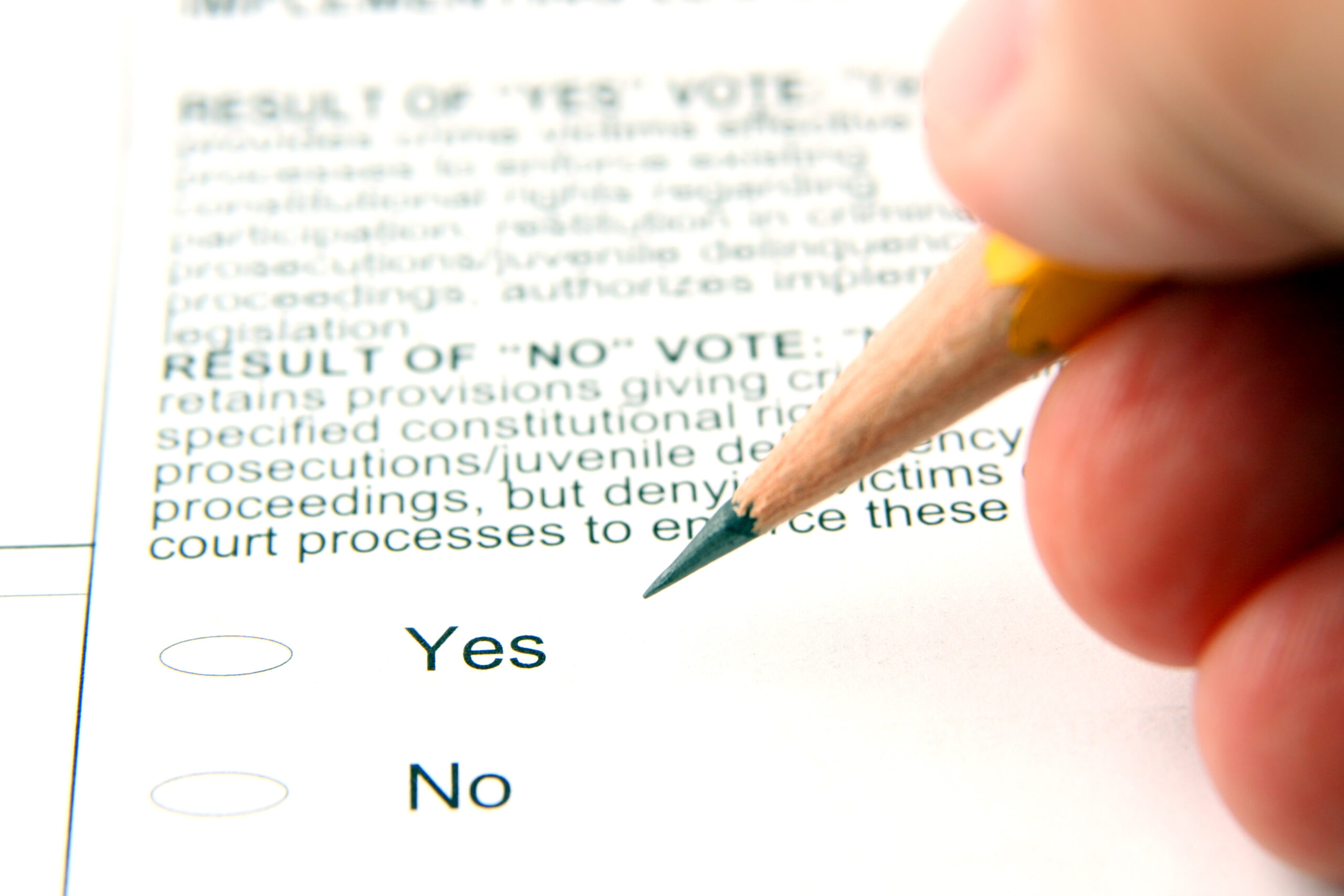
In the lead-up to the 2024 election, while many Americans focus on who the next U.S. president will be, another significant issue is on the ballot in several states. Nevada, Oregon, Alaska, and Missouri voters will decide whether to adopt or reject ranked-choice voting (RCV), a topic we’ve previously covered. Proponents argue that this reform can make elections more representative and reflective of voters’ preferences, while opponents raise concerns about its complexity and potential unintended consequences.
What is Ranked Choice Voting?
Ranked choice voting (RCV) is an electoral system that allows voters to rank the available candidates on a ballot from ‘favorite’ to ‘least favorite’. Once all votes have been tallied, if one candidate has more than 50% of the votes, the election is over, and that candidate wins. However, if no candidate reaches the 50% benchmark, the candidate with the least votes is eliminated. The ballot reallocates the votes for an eliminated candidate to the voters’ second choices. This process repeats until a candidate reaches the 50% benchmark, ensuring majority approval. As of July 2024, Alaska and Maine have implemented RCV for statewide elections. Almost four dozen municipalities, including New York City, use RCV for local races. On the other hand, Montana, Idaho, South Dakota, Tennessee, Florida, Kentucky, Alabama, Mississippi, Louisiana, and Oklahoma have banned RCV, with the latter five bans occurring since April 2024.
2024 Ballot Measures
In the upcoming 2024 election, the issue of RCV will be put to the voters of 4 different states in the form of ballot measures. If passed, ballot measures in Nevada and Oregon would support the implementation of RCV in their state. If passed, ballot measures in Alaska and Missouri would weaken or block RCV in their state.
Measures in Favor of RCV
Nevada Question 3
If passed, this initiated constitutional amendment would establish open primaries and RCV for general elections, which would apply to congressional, gubernatorial, state executive official, and state legislative elections. In Nevada, voters must approve initiated constitutional amendments in two successive general elections. Voters first approved the ballot initiative in the 2022 election, which must now be approved for a second time in the 2024 election to become law.
Oregon RCV for Federal and State Elections Measure
If passed, this legislatively-referred state statute would implement RCV for primary and general elections for federal and state executive offices beginning in 2028. A legislative referral is a ballot measure appearing on a ballot due to a state legislature vote.
Measures Against RCV
Alaska Repeal Top-Four RCV Initiative
This petition would eliminate the open top-four primaries and RCV general elections in Alaska and re-establish a party primary system. An indirect-initiated state statute is a citizen-initiated ballot measure that amends existing statutes. This measure seeks to repeal a previous ballot measure, Ballot Measure 2, passed in Alaska in 2020, replaced partisan primaries with open top-four primaries, and established RCV for general elections.
Missouri Require Citizenship to Vote and Prohibit RCV Amendment
This ballot measure is a legislatively referred constitutional amendment which, if passed, would amend the state constitution to provide that only legal, adult U.S. citizens can vote, establish that each voter has one vote per open seat or issue, to prohibit the implementation of RCV, and to require plurality primary elections in which one winner advances to the general election. The three final prongs of this proposed constitutional amendment would ban the implementation of RCV in future Missouri elections.
Latest News
Photo credit: iStock.com/rarrarorro The 2025 Pennsylvania primary election results are in. From Pittsburgh’s tightly contested mayoral race to Harrisburg’s crowded Democratic primary and key judicial contests across the state, voters made their voices heard. Meanwhile, [...]
Photo credit: iStock.com/burcu demir The 2024 election brought a major shift in the political landscape, with Republicans making sweeping gains across the country. Former President Donald Trump returned to the White House, winning both the [...]
Photo credit: iStock.com/Svanblar In the 2024 U.S. general elections, voters nationwide will make crucial decisions on 2024 ballot measures alongside selecting their political representatives. These ballot measures allow citizens to directly vote on policy issues [...]
Ever wondered what goes into organizing a U.S. presidential debate? In this episode of Back in Session, Ryan Stevens and Ryan DeMara sit down with Jean Cantrell and Dan Felton, who have served as members of [...]






Stay In Touch